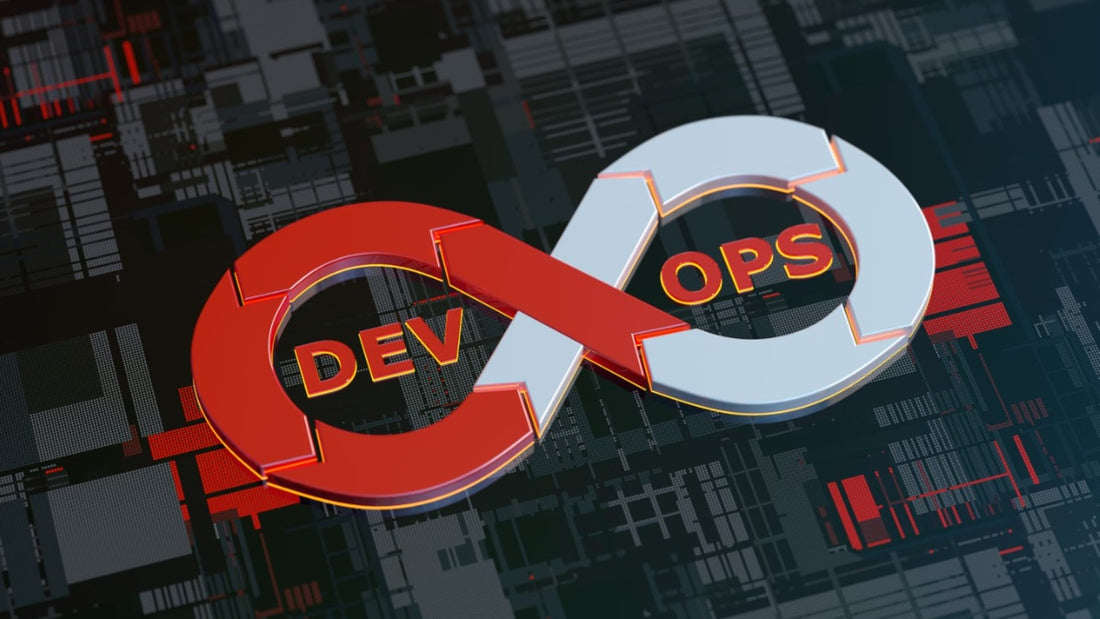Optimize your development pipeline! Dive into the definitive guide to DevOps hiring, ensuring you onboard experts for streamlined deployments and success.

The term “DevOps” sounds quite exciting or like some kind of covert operation, but it is quite the opposite. DevOps is a combination of the terms “development” and “operations”. It represents an inclusive and highly collaborative method for developing IT applications and projects that includes everyone from engineers and development teams to project managers and designers.
Broadly speaking, DevOps is technically a cross-team philosophy or methodology for promoting better communication and teamwork within and outside development teams. It is based on the adoption of iterative development along with automated and programmable infrastructure for deployment and maintenance. It effectively helps companies reinvent the software delivery chain, functions, IT tools, and overall best practices.
In addition to the technical benefits, DevOps also helps build better working cultures and relationships. For example, working across teams and with a broader group of employees helps build trust and cohesion among team members. Since relationships between developers, systems administrators, and business decision makers are not always a priority, DevOps makes them an integral part of the work process.
Hiring Guide
In short, a DevOps engineer is an experienced developer who has a solid grasp of the steps of the general software development lifecycle, understands different automation testing tools for continuous integration and continuous delivery pipelines, and can successfully manage a team of DevOps. This makes them incredibly sought after in today's technology landscape, with the need continuing to grow.
It is important to note, however, that “DevOps Engineer” or just using DevOps as a job title is something of a scam as there is no step-by-step guide to follow to pursue this career path. Whether or not an engineer should apply for a DevOps role within a company mainly depends on their skills and experience.
A DevOps approach helps developers execute IT projects to meet business needs, but coexists with other procedures or methodologies. For example, many DevOps engineers work on Agile, Lean, Six Sigma, and many other strategies. Developers in these roles must build a continuous delivery and continuous integration pipeline while ensuring that all aspects of the process work together synchronously.
In their daily roles, DevOps specialists analyze individual functions of the project environment while writing code with an emphasis on scalability. This means they must have the skills to write code in multiple languages. Skills and experience in testing and strategic planning are also must-have skills for successful DevOps professionals.
All the smaller skills required for a good developer, combined with professional soft skills such as communication, processing skills and knowledge, business skills, automation capabilities, and so on, make up the broader picture of a hirable and well-rounded DevOps developer. successful. The best DevOps engineers resist stereotypical organizational silos and embrace constant collaboration across teams to ensure everyone's success.
Interview Questions
What is configuration management and why is it important in DevOps?
Configuration management is the practice of handling change to ensure that systems do not lose their integrity over time. This involves applying certain policies, techniques, procedures and tools used for evaluating and amending proposals, managing them and monitoring progress, together with maintaining the necessary documentation.
Configuration management helps provide technical and administrative guidance on the design and development of the project in question. At the same time, it helps in automating tedious and time-consuming tasks to increase the overall agility and efficiency of an organization. It helps improve the product development process by bringing consistency through means of control, simplification, extensive documentation, and change implementation management.
How does DevOps differ from Agile Methodology?
Agile is specifically a software development methodology used to focus on the incremental, iterative, and rapid release of software pieces or features through customer engagement through constant feedback. It helps bridge the gap between the customer and the development team.
DevOps typically follows the Agile methodology, but it is much more than that. DevOps is a work practice or culture focused on the collaboration of development and operations teams to create a unified workforce for successful product development and launch. Practices continuous development, integration, testing, deployment and monitoring of the Software Development Life Cycle.
What is the difference between continuous development and continuous delivery?
Continuous deployment occurs when the production environment is fully automated and does not require any manual or human intervention. The processes are executed by an automated set of instructions and do not require approvals. Continuous delivery requires some manual intervention and typically requires approval from a supervisor before deployment to production. The functioning of the application also depends on the team's decisions.
Job description
We are currently looking for an experienced DevOps developer to join our team and help improve the customer experience by building working systems. The ideal candidate will work on ways to automate and improve the development lifecycle as well as product launches while making communication a top priority. They will manage the design, development, testing, and deployment of products to help meet customer needs.
Responsibilities
- Deploy and maintain critical applications
- Implement effective monitoring, automation, and infrastructure-as-code solutions
- Maintain and deploy continuous integration and deployment pipelines in development environments
- Build and configure new development tools and infrastructure
- Design procedures for system maintenance and troubleshooting
- Work with software developers and engineers to ensure compliance with established processes and procedures
Skills and qualifications
- Bachelor's degree in Computer Science, Engineering or similar discipline
- 5+ years of DevOps engineering experience
- Working knowledge of databases
- Incredible problem-solving skills
- Collaborative and communication-based work style
- Good knowledge of several programming languages
If you liked this, be sure to check out our other DevOps articles.
- Hire Ansible Developers
- How to hire a DevOps engineer
- A Guide to Implementing DevOps in Healthcare
- What is infrastructure as code and why should it matter to your company?
- Infrastructure is becoming code




















































